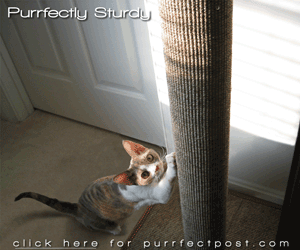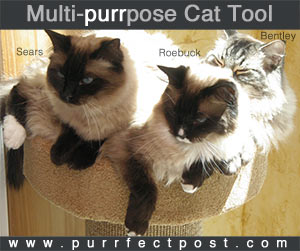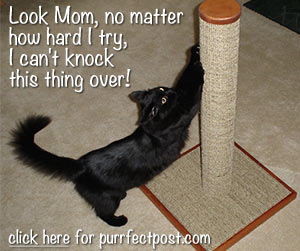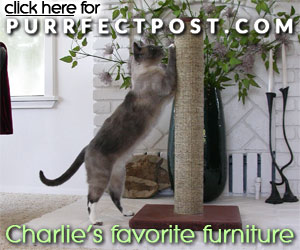Top 10 Most Popular Cat Breeds - Slideshow

10 Most Popular Cat Breeds
We all know that cats are great pets. They are friendly, clean, and entertaining. They also come in lots of shapes and sizes. The American Cat Fanciers Association released a list of the most popular cat breeds in America for 2016. This slideshow includes the top ten with a short description of the common characteristics of each breed.

Number 10: Devon Rex
Devon Rex cats have very soft, short, wavy coats. They are active, playful, and can be mischievous. They have been described as "a monkey in a cat's clothing." You can learn more about them here: "Devon Rex Cats: An Interview with Fancy Cat."

Number 9: Abyssinian
Abyssinians are a medium-sized cat with a short coat. They are intelligent and like to be very active. They are usually not content to lap-sit but require lots of play and exercise. Learn more: "Abyssinian Cats: An Interview with Fancy Cat."

Number 8: Sphynx
The Sphynx cat is a mostly hairless variety, and people either love or hate the way they look. They are very affectionate and can sometimes be considered demanding. Sphynx cats are very active. Learn more about this fun breed here: "Sphynx Cats: An Interview with Fancy Cat."

Number 7: Scottish Fold
Scottish fold cats are best-known for the fact that the tips of their ears fold downward. Many people say this makes them look like owls with fur. They are easy-going, good with other animals and people, and adapt easily to new situations. Learn more here: "Scottish Fold Cats: An Interview with Fancy Cat."

Number 6: American Shorthair
American Shorthair cats are quiet and intelligent. They can seem aloof sometimes, but they do like to play. Their coats are easy to care for, needing to be brushed once a week or so. Learn more: "American Shorthair Cats: An Interview with Fancy Cat."

Number 5: Maine Coon
Maine Coon cats are large (sometimes up to 25 pounds) and sweet-natured. They are very friendly, love to play, and are good with kids, dogs, and other cats. Their coat requires regular combing, especially the underside, but daily brushing isn't necessary. You can learn more here: "Maine Coon Cats: An Interview with Fancy Cat."

Number 4: Persian
The Persian cat is the most popular cat breed in America and has been for over 30 years. Persians have a calm and sweet demeanor and are very adaptable, making them great companions. They are quiet and have a lower energy level than some other breeds. Their long, beautiful coat does require daily brushing or it will mat, and Persians do have some common health conditions to be aware of. Learn more here: "Persian Cats: An Interview with Fancy Cat."

Number 3: British Shorthair
British Shorthair cats are very similar in personality and care to American Shorthair cats. They are quiet and a bit reserved. They love being lap-cats but are happy to play sometimes, too. Learn more here: "British Shorthair Cats: An Interview with Fancy Cat."

Number 2: Ragdoll
Ragdoll cats can be up to 20 pounds, are quite stocky, and are extremely good-natured and loving. They have semi-long coats that are easy to care for because they don't mat easily. You can learn more here: "Ragdoll Cats: An Interview with Fancy Cat."

Number 1: Exotic Shorthair
The Exotic Shorthair cat is a Persian with a short coat, and thus has the same sweet, calm disposition but with a coat that is easier to care for. They tend to be a bit livelier than their Persian cousins but are still calm and snuggly when desired. Learn more: "Exotic Shorthair Cats: An Interview with Fancy Cat."

Interview with Fancy
For more information on each breed, stay tuned for upcoming interviews that Fancy will be doing with their representatives.
Notice: Ask-a-Vet is an affiliated service for those who wish to speak with a veterinary professional about their pet's specific condition. Initially, a bot will ask questions to determine the general nature of your concern. Then, you will be transferred to a human. There is a charge for the service if you choose to connect to a veterinarian. Ask-a-Vet is not manned by the staff or owners of CatHealth.com, and the advice given should not delay or replace a visit to your veterinarian.






